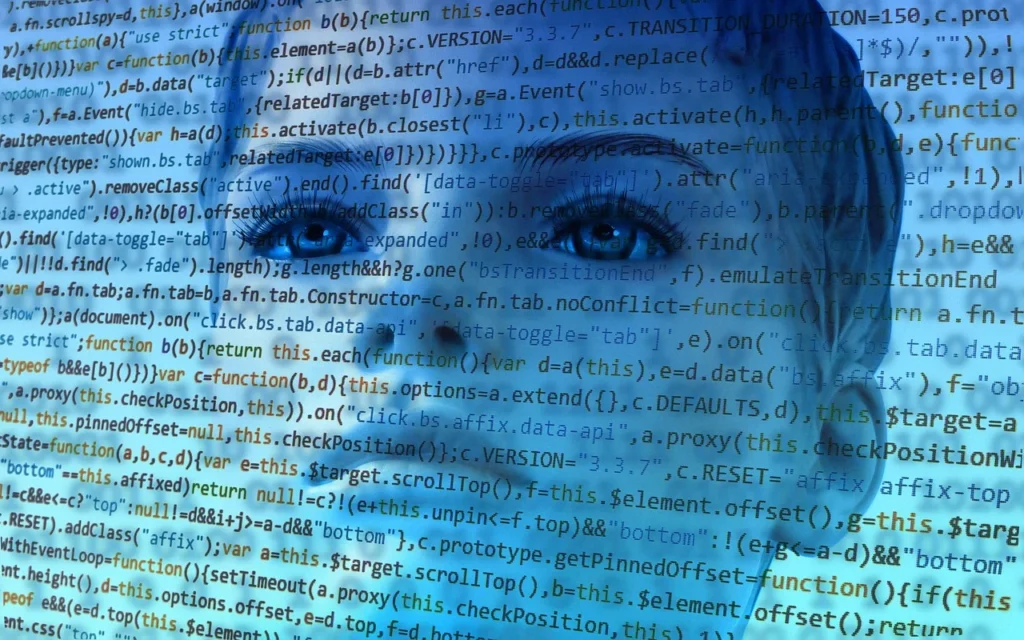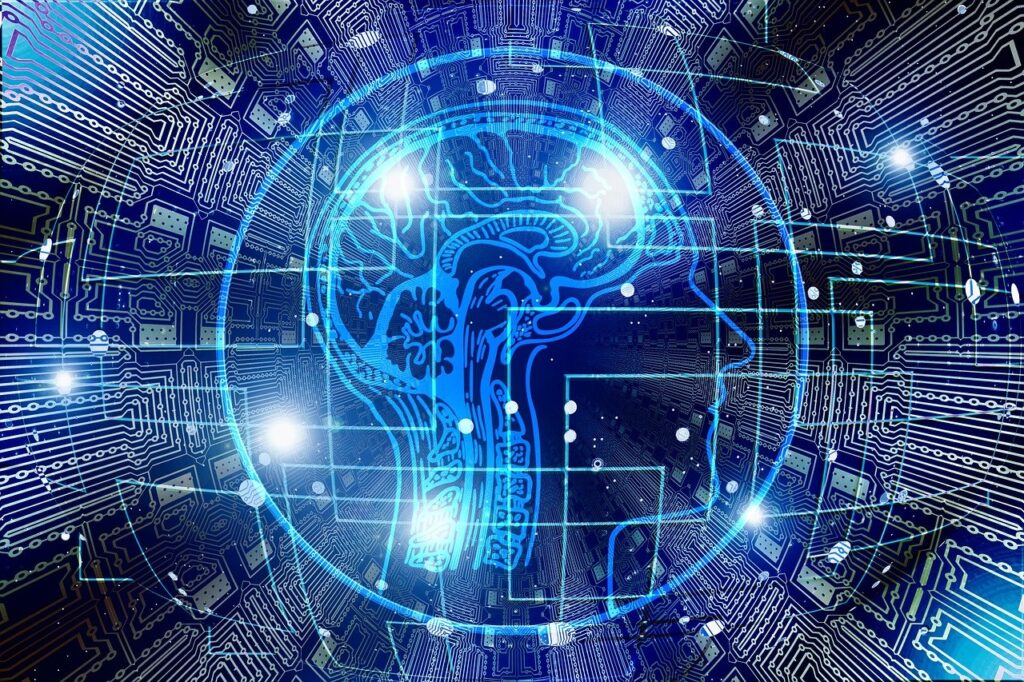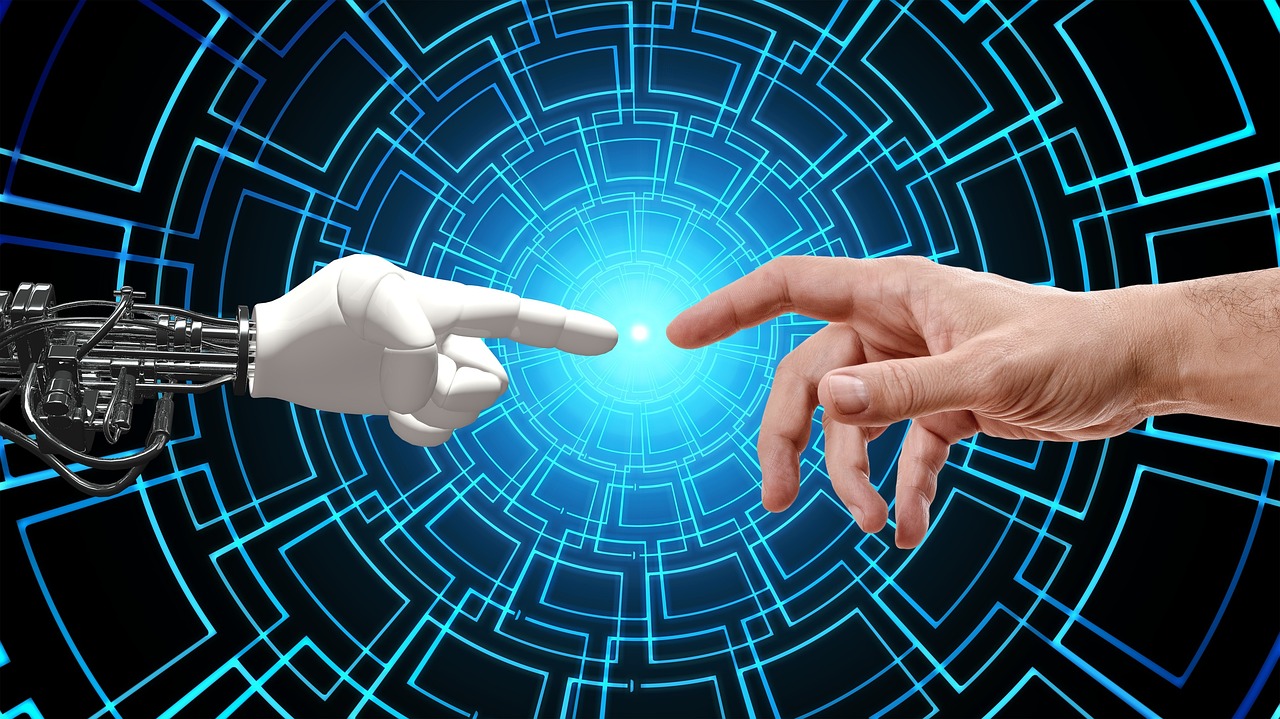This great technological era, which was marked by a great and never-experienced technological advancement, had an even bigger question of just how, in the details, AI will surpass human intelligence in all aspects. Artificial Intelligence is the endless rise of computer intelligence based on learning, adaptation, and automation; it preludes change for the world’s workforce. Its application may be in industries to improve efficiency, productivity, and accuracy in decision-making processes with the impact of AI.
This increased rise of AI in every field has put human jobs at great risk and has made people wonder, “Will AI take over humans?” In this post, we will go into detail regarding the faster rates of AI integration and what possible impacts are to be incurred on employment in several sectors. Let’s get in!

The Intelligence Race: Humans vs. AI
In the realm of technological advancement, the only question concerning this impact is when it will occur, not if. Central to this changing era is the premise of AI taking over humans, a buzz story that currently lures every industry. So, this “race of intelligence” between human beings and AI is not a matter of competition only; it’s that unpreventable transit led by a search for efficiency and boundless innovation.
As AI systems advance to unimaginable sophistication and gain the ability to perform some of the tasks that have been considered a prerogative of humans, our role in completing them finds itself as a subject for a new question: How could it change? From simply automating tasks, the impact of AI is now in creative, strategic, and, eventually, emotive areas that were once thought to be purely for humans.
With every great technological leap, that line of difference between humans and machines blurs further, making us rethink our roles in a world where AI’s rise has moved from possibility to probability to something much closer to reality. The need for us to adapt and evolve with our digitized counterparts is not a challenge but rather more of an opportunity, a chance to redefine the synergy between human intelligence and artificial prowess.

Industry-Specific Takeovers By AI
In the world of technological development, the danger of AI occupation shadows the labor market. The impacts of AI reach far, and therefore, in many sectors, change, more or less, the concept of holding a job since AI can automate operations that are done by people.
Healthcare
In Healthcare, the expanded scope of duties up to taking over the maximum number of routine jobs includes data entry and some aspects of patient care that are now performed more accurately by AI-driven systems interpreting medical data. That could mean a redrawing of roles across the sector, pushing human workers into positions with more complexity but where they complement AI.
Finance
The Finance sector is also on the brink of great change, as AI can automate complicated analyses, execute trades at superhuman speeds, and even handle customer inquiries. Such capabilities suggest a future where the need for human intervention in everyday financial operations might decrease; perhaps it will make the demand far less than it is now. This, in fact, foresees a future workforce filled with staff able to manage and integrate AI systems more than actually executing the everyday financial duties as we know them today.
Retail
Retail sees a similar trend, with AI streamlining everything from stock management to customer service. In other words, tasks automated in such a way would likely make those same tasks that human workers are currently doing in their jobs redundant since there will be job functions that AI could do far more effectively and efficiently through technology.
Manufacturing
Manufacturing is going through the phenomenon of AI taking over humans with the introduction of smart automation and robotics, which could execute manufacturing tasks with great precision and efficiency even far beyond human capabilities. The impact of such changes would greatly reduce the human workforce in the manufacturing sector, given that the worker’s role would then center on overseeing and keeping up the AI system rather than playing an active role in production.
Entertainment and Media
In Entertainment and Media, the AI content-generating and content-personalizing abilities of Chatgpt and Gemini are likely to inflict very high disruptions on many within creative and clerical job profiles. And even though the content developed by AI is becoming more advanced, the valuable creative human input might take supervisory or integrative roles and integrate the AI functions with human creativity.
The Impact of AI on the international labor market has come to be realized only further pushed in the face, as per the need for adaptability and reskilling. With the evolution of AI, humans’ capabilities to work beside and complement AI have become really important. This means that the future job landscape will involve these categories of jobs: those using human creativity, empathy, and strategic thinking powered by AI, in contrast to those that can be automated.
Impact of AI on Employment and the Workforce
The emergence of the impact of AI on jobs is one of the most pressing scenarios, strongly indicative of a great shift in the job landscape. The scenario of AI taking over humans is not at all a distant possibility but an imminent reality across every industrial domain. Artificial intelligence is, through technological development, automating activities of all kinds—routine ones and those considered very complex until recently, being performed by people. This wave of automation is reshaping the workforce, and the skills and job roles it requires need to be considered anew.
On one side, AI promises efficiency and innovation, but on the other, it challenges workers whose jobs are at risk of automation. It is, hence, emerging that adaptation is necessary. For success in the new normal, one has to develop the ability to learn continuously, especially developing those aspects of his or her skills that AI cannot mimic. As AI continues to evolve, so too must our approach to work and employment.

Final Words!
In conclusion, the impending dominance of AI in every industry poses many challenges and opportunities for the workforce. The impact on employment is undeniable as AI takes over humans in various sectors due to rapid technological advancement. However, proactive measures can mitigate job displacement through reskilling initiatives and ethical AI deployment. Moreover, collaboration between humans and AI becomes crucial in navigating this transformative period, emphasizing the need for human-centric approaches to innovation.
We hope you find this blog post informative and interesting. Thanks for your precious time!

